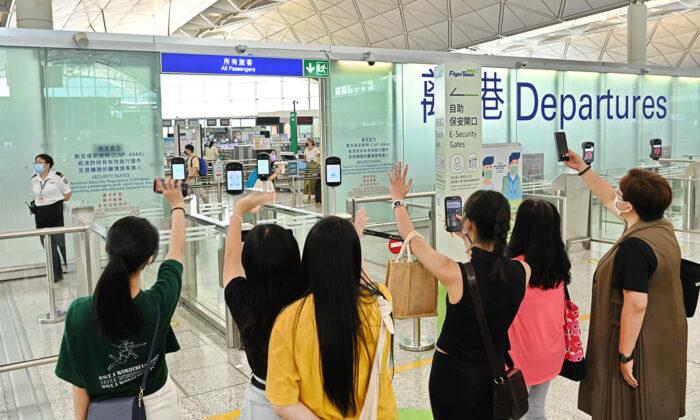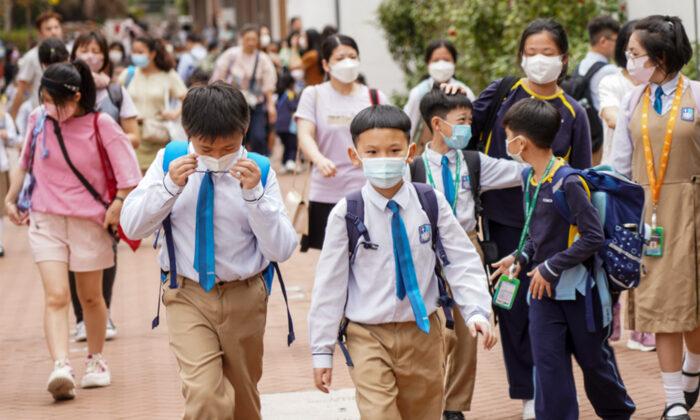The theme of this year’s report is “Defiance in the Face of Autocratization.” It is the seventh report published by the research group. It analyzed data from 202 countries and regions around the world (180 ranked), involving 4,000 scholars. Overall, the level of democracy around the world has declined over the past 35 years, on average falling back to the level it was in 1986. By 2022, 72 percent of the world’s population, a total of 5.7 billion people, lived in authoritarian countries. The Asia-Pacific region has regressed to the level of 1978, while Eastern Europe, Central Asia, Latin America, and the Caribbeans have even regressed to that at the end of the Cold War.
Hong Kong’s Electoral Democracy Rated 18th from the Bottom
In terms of the Liberal Democracy Index, Denmark jumped from No. 2 to No. 1 in the world last year, while Sweden fell from No. 1 to No. 2, and Norway ranked No. 3 for two consecutive years. In Asia, the top three this year are Japan, South Korea, and Taiwan, while last year, they were in the order of South Korea, Japan, and Taiwan.Hong Kong dropped from 123rd last year to 139th this year and was even named as one of nine countries and regions in Asia that had seen democratization decline substantially.“ The nine (in alphabetical order) are Afghanistan, Bangladesh, Cambodia, Hong Kong, India, Indonesia, Myanmar, the Philippines, and Thailand. Hong Kong’s freedom and democracy index dropped from around 0.3 points in 2012 to 0.12 points in 2022, and it was rated among the 20 to 30 percent of countries and regions with the lowest degree of democracy and is classified as one of the ”closed autocracy” regions with a score close to Vietnam, Egypt, Turkiye, Rwanda and the like.
Media Censorship by Hong Kong Government Rapidly Deteriorating
This year’s report specifically mentions government censorship of the media as deteriorating most severely in Hong Kong, Afghanistan, Poland, El Salador, and Mauritius in the past decade. In Hong Kong, the “Government’s Disinformation” level has risen from about 2.5 points in 2012 to 3.5 points in 2022. This is a score comparable with that of Myanmar, Cambodia, and North Korea.The “Political Polarization” level also rose from about 2.3 points in 2012 to 3.9 points in 2022, a score fairly close to that of Myanmar and Belarus.
China’s Ranking Remains at 8th From the Bottom
In Mainland China, the ranking of the Freedom and Democracy Index remains unchanged, ranking 172nd in the world for two consecutive years, or the 8th from the bottom, and is classified as one of the ten percent of countries with the lowest degree of democracy in the world. Its score is in line with those of Belarus, Turkmenistan, Yemen, and Saudi Arabia.The report specifically mentioned that China, Myanmar, Vietnam, and Iran are the four closed authoritarian countries that account for about 28 percent of the world’s population, with a total of 2.2 billion people. In contrast, 58 “electoral democracy” countries account for just 16 percent of the world’s population, while 33 “liberal democracy” countries account for just another 13 percent of the world’s population.
Multiple Reports Point to Deteriorating Conditions in Hong Kong
In February 2023, an American think tank, the Cato Institute, and its Canadian counterpart, the Fraser Institute, published the “Human Freedom Index 2022,” and Hong Kong’s ranking dropped from first in the world in 2016 to 34th in 2022 with the rankings of freedom of speech, and freedom of association and assembly dropped to 78th and 140th respectively. The report criticized the CCP’s implementation of the “National Security Law” in 2020, which violated the “one country, two systems” and ended Hong Kong’s autonomy.On Feb. 8, ECA International, a human resource consulting agency, announced the ranking of the world’s most livable cities. Hong Kong dropped 15 places in 2022 from 2021 to 92nd. The implementation of the “National Security Law” is one of the main reasons leading to its drop in ranking.
On March 6, the United Nations Committee on Economic, Social and Cultural Rights, in its review report, gave the conclusion of its fourth report on Hong Kong with reference to the International Covenant on Economic, Social and Cultural Rights, cited that the National Security Law for Hong Kong has actually abolished Hong Kong’s judicial independence. It urged the CCP and the Hong Kong government to review the content of the “National Security Law” to ensure Hong Kong’s full judicial independence and not to use this law at will to interfere with the independence of the judiciary.




